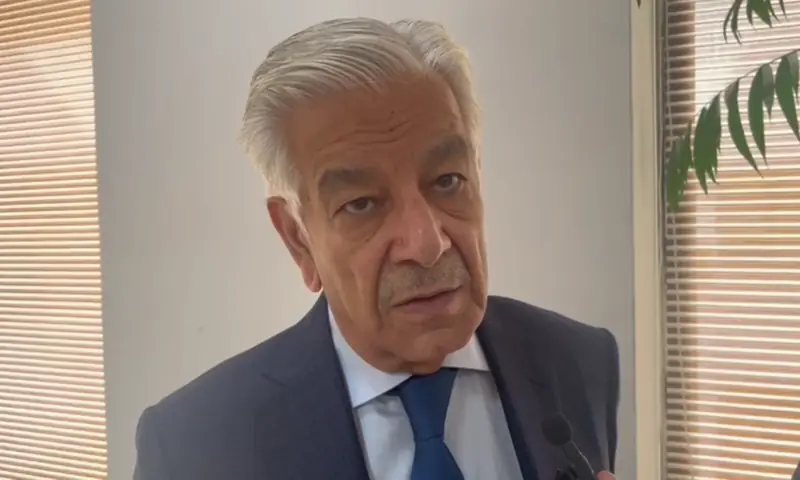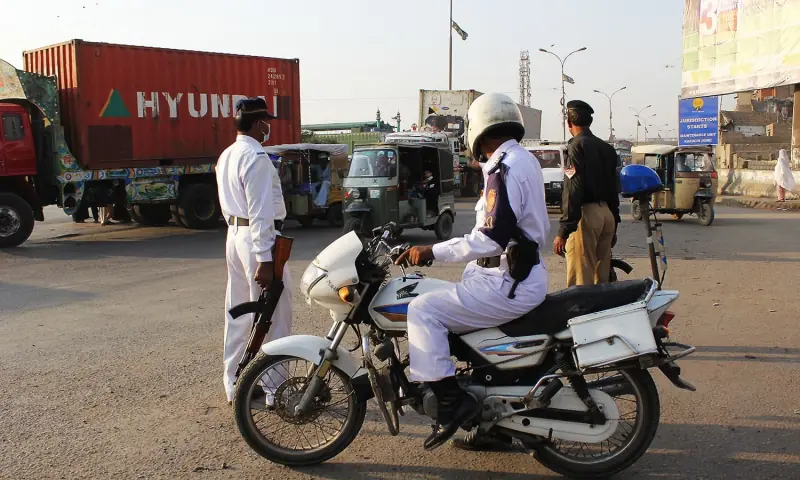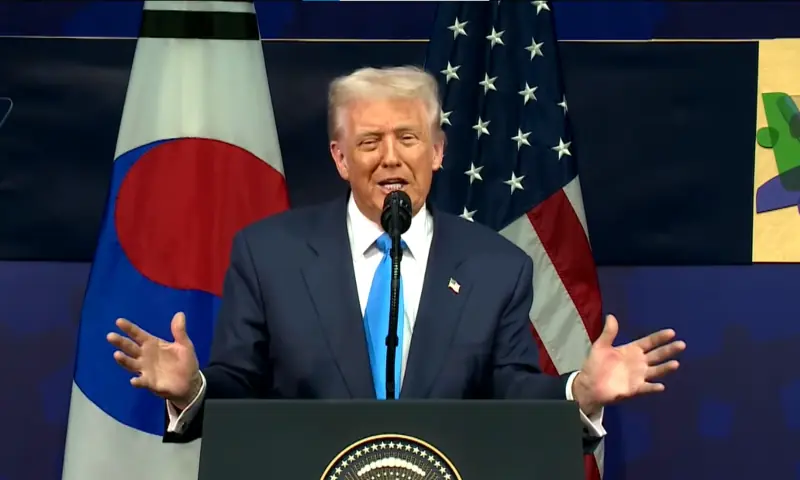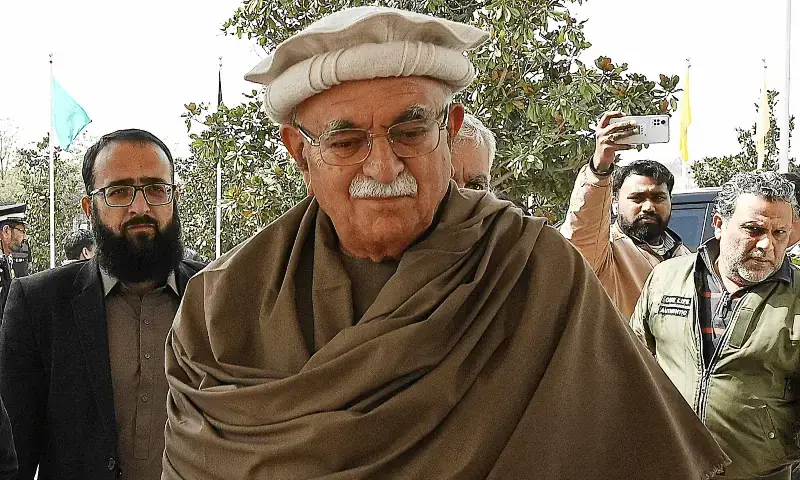Defense Minister Khawaja Asif on Wednesday warned the Taliban regime that Islamabad would strike “deep in Afghanistan” if Afghan soil was used to launch terror attacks against Pakistan.
In a pre-dawn announcement, Information Minister Attaullah Tarar said the latest round of talks between the two countries in Turkiye, which aimed to address cross-border terrorism emanating from Afghan soil, “failed to achieve any viable solution.”
“We will carry out attacks, we definitely will,” Asif told reporters in Parliament, when asked about the options available to Pakistan in case of cross-border attacks from Afghanistan.
“If their territory is used and they violate ours, then if we need to go deep into Afghanistan to retaliate, we certainly will,” he added.
The Defense Minister said that Afghanistan does not “meet the definition of a State” nor did the interim administration consider it so. “They are benefiting financially by being the rulers.”
Asked if the Afghan Taliban were leading their country into a situation similar to the US military operation in Tora Bora in December 2001, Asif said: “It’s definitely a possibility.”
Asif’s latest comments come hours after he issued a strong warning to Taliban rulers in Kabul, telling them to test Islamabad’s resolve at their “own peril and perdition” if they so wish.
“We have endured their betrayal and ridicule for too long but nothing more. Any terrorist attack or suicide bombing inside Pakistan will give you the bitter taste of such misadventures. Rest assured and test our resolve and capabilities, if you wish, at your own peril and doom,” Asif posted on social media platform X.
The Defense Minister said that Pakistan had initiated talks to give a chance to peace at the request of the brotherly countries, to whom the Kabul rulers were persistently pleading, however, “the poisonous statements of certain Afghan officials clearly reflect the devious and divided mentality of the Taliban regime.”
“Let me assure you that Pakistan does not need to employ even a fraction of its entire arsenal to completely destroy the Taliban regime and force them to return to the caves to hide. If they so wish, a replay of the scenes of their defeat at Tora Bora, with their tails between their legs, would surely be a sight to behold for the people of the region.”
Asif further accused the Taliban rulers in Kabul of “blindly pushing Afghanistan into yet another conflict, just to preserve their usurped government and maintain the war economy that sustains them.”
“Despite fully knowing the inherent limitations and hollowness of their war cries, they are beating the drums of war to maintain their crumbling façade. If the Afghan Taliban regime is madly bent on ruining Afghanistan and its innocent people once again, so be it,” he said.
In his post, Asif also referred to the phrase “graveyard of empires” used for Afghanistan in relation to the historical cases of several nations that failed to conquer the country.
“As for the ‘graveyard of empires’ narrative, Pakistan certainly does not claim to be an empire, but Afghanistan is definitely a graveyard, surely for its own people. Never a graveyard of empires, but a playground for empires, which you have been throughout history,” Asif commented.
He said that “the Taliban regime’s warmongers, who have a vested interest in continued instability in the region, should know that they have probably misinterpreted our determination and courage.”
“If the Taliban regime wants to fight us, the world, Insha Allah (God willing), will see that their threats are just a performative circus!”
UN expresses concern over failure of talks
On the other hand, the United Nations expressed concern about the failure of talks between Pakistan and Afghanistan, hoping that “the fighting will not resume.”
UN spokesman Stéphane Dujarric was asked about the failure of the negotiations and whether this worried the UN.
“Yes, it is, of course. We are very hopeful that even if the talks are on pause, the fighting will not resume,” he told reporters at the regular midday briefing at UN headquarters in New York. APPLICATION reported.
From border skirmishes to talks about failure
Pakistan and Afghanistan have seen worsening ties in recent days, including border skirmishes, counter-statements and accusations.
Hostilities began earlier this month, when an attack was launched against Pakistan from Afghanistan on the night of October 11. The attack followed an allegation by the Taliban of Pakistani airstrikes against Afghanistan, an allegation that Islamabad has neither confirmed nor denied.
For its part, Islamabad has long demanded that the Taliban prevent terrorist groups from using its soil against Pakistan. The Taliban, however, deny the accusation of allowing terrorists to operate from Afghan soil.
Meanwhile, Pakistan continues to grapple with the issue of terrorism and has suffered multiple casualties among security forces in intelligence-based operations.
After the initial skirmish on October 11, many others occurred along the Pakistan-Afghanistan border. Meanwhile, the Islamabad attacks also targeted the camps of the Gul Bahadur group in Afghanistan.
Ultimately, the two sides met for talks in Doha, resulting in a temporary ceasefire, as well as a commitment to meet again in Istanbul to work on mechanisms for lasting peace and stability between the two countries.
The second round of talks between the two parties, mediated by Turkiye and Qatar, began last week in the Turkish capital.
But today, Tarar announced in a post on X that the latest round of talks between Islamabad and Kabul in Istanbul “failed to achieve any viable solution.” He also stated that Pakistan would continue to take all possible measures to protect its citizens from terrorism.
The information minister said Pakistan had repeatedly engaged with the Afghan Taliban over “persistent cross-border terrorism” perpetrated by “complicit terrorists” from India.
“The Afghan Taliban regime has been asked time and again to fulfill its written commitments to Pakistan and the international community in the Doha Agreement. However, Pakistan’s zealous efforts proved futile due to the Afghan Taliban regime’s incessant support for anti-Pakistan terrorists,” Tarar said.
The information minister’s statement came hours after Asif said a deal with Kabul was close to being reached, but Afghan negotiators backed off after contacting Kabul during negotiations.
Earlier, when the second round of talks between the two sides began on October 25, Asif had warned that failure to reach an agreement would mean “open war”.
Additional application entry








